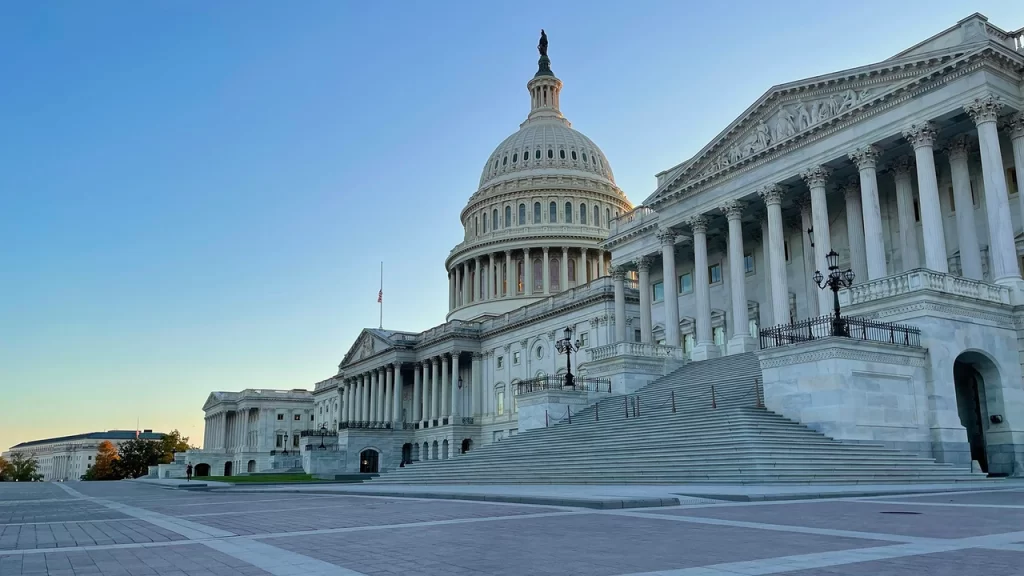
- AgValue Consulting
- July 21, 2024
- 4:38 pm
- 3 minutes
House Agricultural Committee Advances Farm Bill
The recent passage of the Farm, Food, and National Security Act of 2024 by the U.S. House Agriculture Committee represents a pivotal moment for the agricultural sector. The bill, introduced by House Agriculture Committee Chairman G.T. Thompson, aims to address several critical issues within the farming industry. After extensive debate, the committee passed the bill with bipartisan support, setting the stage for further legislative action. Here, we analyze the key provisions of the bill and explore its potential impacts on farmers in the Southeastern United States.
Key Provisions of the 2024 Ag Bill
The Farm, Food, and National Security Act of 2024 includes several significant changes aimed at supporting the agricultural sector:
Increased Statutory Reference Prices: The bill proposes a 10-20% increase in statutory reference prices for all covered commodities. This change is designed to provide a more stable financial foundation for farmers by ensuring they receive fair prices for their products.
Enhanced Crop Insurance Subsidies: The legislation includes provisions to raise subsidies for crop insurance, helping farmers manage risks associated with adverse weather conditions and market volatility.
Voluntary Update of Base Acres: Farmers will have the option to voluntarily update their base acres, which can better reflect current agricultural production and improve the alignment of support programs with actual farming practices.
Higher Marketing Loan Rates: The bill increases marketing loan rates for most commodities, offering better financial terms for farmers during the marketing of their crops.
Dairy Program Improvements: The legislation makes several improvements to dairy programs and pricing structures to support the dairy industry.
Controversial Provisions
Several provisions in the bill have sparked debate:
Cost-Neutral Thrifty Food Plan Updates: One of the most contentious elements of the bill is the requirement for future updates to the USDA’s Thrifty Food Plan to be cost-neutral. While this provision aims to save $27 billion, it has faced opposition due to concerns about potential cuts to SNAP benefits.
Climate Guidelines and Commodity Credit Corporation Spending: The bill removes climate guidelines for Inflation Reduction Act conservation funding and restricts USDA’s spending authority under the Commodity Credit Corporation, reallocating funds to increase commodity program payments and crop insurance subsidies.
Implications for Southeastern Farmers
The passage of the Farm, Food, and National Security Act of 2024 is likely to have several implications for farmers in the Southeastern United States:
Enhanced Financial Stability: The increase in statutory reference prices and marketing loan rates is expected to enhance financial stability for Southeastern farmers. By ensuring fair prices for commodities, farmers can achieve more predictable income streams, which can lead to increased investments in farming operations and potentially higher land values.
Improved Risk Management: The raised crop insurance subsidies will provide Southeastern farmers with better tools to manage risks associated with unpredictable weather patterns, pests, and market fluctuations. This improvement in risk management can lead to more resilient farming operations and a reduction in financial stress for farmers.
Operational Adjustments: The voluntary update of base acres allows farmers to better align their operations with current production realities. This flexibility can help Southeastern farmers optimize their use of land and resources, leading to more efficient and profitable farming practices.
Impact on Nutritional Assistance Programs: The cost-neutral requirement for updates to the Thrifty Food Plan may result in reduced funding for SNAP benefits, which could affect food security for low-income families in the Southeast. Farmers who rely on local markets and food assistance programs may see changes in demand for their products.
Environmental and Conservation Considerations: The removal of climate guidelines for conservation funding and restrictions on USDA’s spending authority under the Commodity Credit Corporation could impact conservation efforts in the Southeast. Farmers may need to adapt their practices to align with the new funding priorities, potentially affecting long-term sustainability initiatives.
The Farm, Food, and National Security Act of 2024 represents a significant legislative effort to support the agricultural sector through various financial and operational measures. While the bill provides enhanced stability and risk management for farmers, it also presents challenges related to nutritional assistance and conservation funding. Southeastern farmers, in particular, will need to navigate these changes and adapt their practices to maximize the benefits and mitigate potential drawbacks. As the bill progresses through Congress, ongoing dialogue and advocacy will be crucial to ensure that the needs of farmers and rural communities are effectively addressed.
